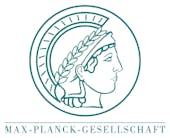Max Planck Institute of Geoanthropology

The Max Planck Institute of Geoanthropology in Jena was founded in 2014 (as the Max Planck Institute for the Science of Human History) to target fundamental questions of human history and evolution since the Paleolithic. From the vantage point of three interdisciplinary research departments – the Department of Archaeogenetics (Director Johannes Krause), the Department of Archaeology (Director Nicole Boivin), and the Department of Cultural and Linguistic Evolution (Director Russell Gray) – the institute pursues an integrative approach to the study of human history that bridges the traditional divide between the natural sciences and the humanities.
By assembling experts from research areas as diverse as palaeogenetics, proteomics, bioinformatics, anthropology, archaeology, history, and quantitative linguistics, the MPI-SHH seeks to join and advance a broad range of methods, approaches, and datasets to explore big questions of the human past. Using state-of-the-art analytical techniques and technologies, the institute tackles these and other topics:
– The settlement history of the world through past human migrations and genetic admixture events
– The spread and diversification of human-associated microbes and infectious diseases
– The impact of climatic and environmental change on human subsistence in different world regions
– Human modification of ecosystems
– The rise of early forms of global trade systems
– The spread and diversification of languages, cultures, and social practices
– The co-evolution of genes and culture
